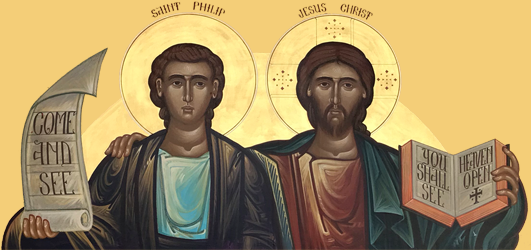Leviticus 1:9
“The priest shall then put all of it on the altar as a burnt offering, a sacrifice for a sweet aroma to the Lord.” (OSB)
As we move into the Book of Leviticus, we move further into the mystery of what it means for God to dwell with His people, and thus for Israel to share in God’s presence. Viewed from one angle, what God is giving to Israel is a wonderful blessing! God is giving Himself to Israel, and in His tabernacling among His people, He is inviting and summoning Israel to offer themselves back to Him in thanksgiving and glory (Rom 1:20), that is, to live as God’s unique priestly Kingdom (Exod 19:6), continually laying themselves on the altar of divine service as living sacrifices like their forefather, Isaac. On the other hand, in this meeting of God and Humanity, two fundamental problems are brought into clear focus:
1) God’s transcendence/“otherness”: If God is to be worshipped rightly (i.e., unlike the false gods of the pagans), there must be no sense in the worship system given to Israel that God “needs” sacrificial offerings, that He is in some way dependent upon and thus able to be manipulated by human ritual acts. True worship directed to the one true God must be distinguished from the false worship performed in the “spirit of Cain.”
2) Humanity’s corruption by sin and death: Because of God’s holiness, His “otherness,” and because humans have been corrupted by sin and death, humanity is not in such a state as to live in perfect communion with God. If humanity is to dwell with God, God Himself must provide a means by which the place of His dwelling can be cleansed of spiritual-ritual impurity, and the Divine-Human meeting can lead to forgiveness, reconciliation (“at-one-ment”), and communion, rather than enmity, alienation, and expulsion.
The opening chapters of Leviticus, chaps. 1-7, present the five (5) different types of sacrificial offering that the Israelites could make, which are divided in turn into two categories: 1) Lev 1-3—Voluntary offerings (Burnt, Grain, & Peace offerings); Lev 4-5—Mandatory offerings (Sin & Restitution offerings)
These two classes of offerings answer the two problems just mentioned, in turn. Focusing here only on the Voluntary offerings, we note that these offerings, which comprised the bulk of Israel’s sacrificial system, have nothing to do with either sin or forgiveness, nor are they commanded. The Israelite comes to the Tabernacle to offer, say, a Burnt Offering, not out of fear, or compulsion, or to assuage God’s wrath—which, incidentally, also means that the slaughter of the animal and the offerer’s identification with the animal are not pointing to a logic of substitutionary violence or punishment. Rather, the Israelite comes to sacrifice because he wants to be with God, to give thanks to God, and the sacrifice, which is immolated and placed on the altar, whose smoke ascends to God as a “sweet-smelling savor” (cf. Eph 5:2; Gen 8:21), is a sacramental sign of the Israelite’s self-offering to God.
St. Paul himself confirms this understanding of the sacrificial system when, discussing the Eucharist, he says: Observe Israel after the flesh: Are not those who eat of the sacrifices partakers of the altar? (1 Cor 10:18). When the offerer eats the sacrifice, he “becomes” the sacrifice and so is united with the altar on which the sacrifice was made, where God’s presence is as well.
The sacrificial system, then, is also in its essence a communal endeavor. The Israelite offers sacrifice not as an isolated individual, but as part of a holy nation, and the communion that is effected is with both God and fellow men. Israel is constituted as a spiritual communion through its sacrifices. Indeed, the Peace Offering was to culminate in a family feast, which is an ancient precursor of sorts to “Coffee Hour”!
~ By Reader Justin Gohl

